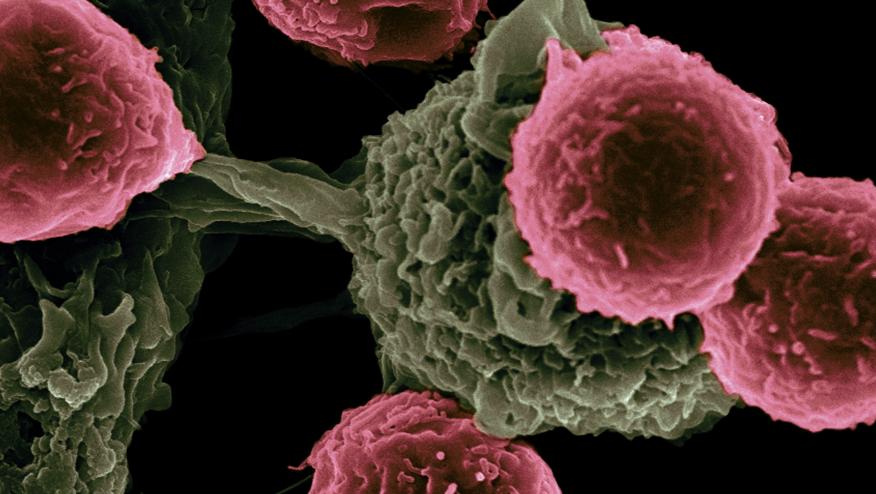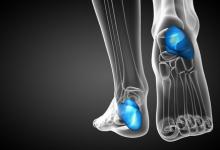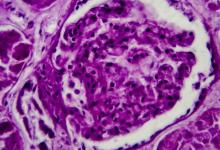Certain Cancers Increased with Autoimmune Diseases Save

Rheumatologists are well aware that inflammation and immune dysregulation are prime contributors to cancer risk, but do oncologists carry the same impressions? A large study from JAMA Oncology shows that patients with immune-mediated diseases (IMD) have an overall increased risk of cancer, especially in organ-specific immune-mediated diseases.
A UK practice cohort study sought to prospectively examine cancer risk and associations among 48 immune-mediated diseases. Patients betweem age 37 and 73 years, from 22 centers in the UK were recruited between 2006 and 2010, and followed through 2019. IMD patients included Asthma, Rheumatoid arthritis, Ulcerative colitis, Diabetes mellitus (Type I), Psoriasis, Celiac disease Crohn's disease Polymyalgia rheumatica Multiple sclerosis Psoriatic and enteropathic arthropathies Graves' disease / Autoimmune thyroiditis Ankylosing spondylitis Necrotizing vasculopathies Sarcoidosis Lichen Sicca syndrome Systemic Lupus erythematosus Idiopathic thrombocytopenic purpura Primary biliary cholangitis Myositis Guillain-Barre syndrome Myasthenia gravis and Autoimmune hepatitis
The analysis included 478 753 participants with 4,600,460 person-years of follow-up, from which they identified 2834 cancer events in 61 496 IMD patients compared to 26 817 cancers in 417 257 controls without IMD; showing an increased cancer risk (multivariable HR, 1.08; 95% CI, 1.04-1.12).
Of organ-specific immune-mediated diseases, 5 were significantly associated with higher risk of local cancers:
- asthma (HR, 1.34; 95% CI, 1.14-1.56),
- celiac disease (HR, 6.89; 95% CI, 2.18-21.75),
- idiopathic thrombocytopenic purpura (HR, 6.94; 95% CI, 3.94-12.25),
- primary biliary cholangitis (HR, 42.12; 95% CI, 20.76-85.44), and
- autoimmune hepatitis (HR, 21.26; 95% CI, 6.79-66.61) (P < .002 for heterogeneity).
Nine immune-mediated diseases were associated with an increased risk of cancers in the involved organs:
- asthma with lung cancer [HR, 1.34; 95% CI, 1.14-1.57; P < .001]
- celiac disease with small intestine cancer [HR, 6.89; 95% CI, 2.18-21.75; P = .001]);
13 immune-mediated diseases were associated with an increased risk of cancer in the near organs or distant organs:
- Crohn disease with liver cancer: [HR, 4.01; 95% CI, 1.65-9.72; P = .002])
- autoimmune hepatitis with tongue cancer [HR, 27.75; 95% CI, 3.82-199.91; P = .001])
- idiopathic thrombocytopenic purpura with liver cancer [HR, 11.96; 95% CI, 3.82-37.42; P < .001])
Other caveats from this analysis:
- lymphoma was most common with immune-mediated diseases.
- RA: HR 2.01 (95% CI, 1.34-3.01)
- ITP: HR 7.72 (95% CI, 3.67-16.23) for idiopathic thrombocytopenic purpura.
- Rheumatoid arthritis was associated with an increased risk of lung cancer (HR, 1.71; 95% CI, 1.28-2.28) and lymphoma (HR, 2.01; 95% CI, 1.34-3.01)
- RA had a decreased risk of prostate (HR, 0.62; 95% CI, 0.41-0.94) and breast (HR, 0.64; 95% CI, 0.46-0.89) cancers.
- Necrotizing vasculopathies as a systemic disease was significantly associated with an increased risk of multiple myeloma (HR, 7.98; 95% CI, 2.97-21.43)
These results suggest that immune-mediated diseases are associated with risk of cancer at the local and systemic levels, supporting the role of local and systemic immunoregulation in carcinogenesis.







If you are a health practitioner, you may Login/Register to comment.
Due to the nature of these comment forums, only health practitioners are allowed to comment at this time.